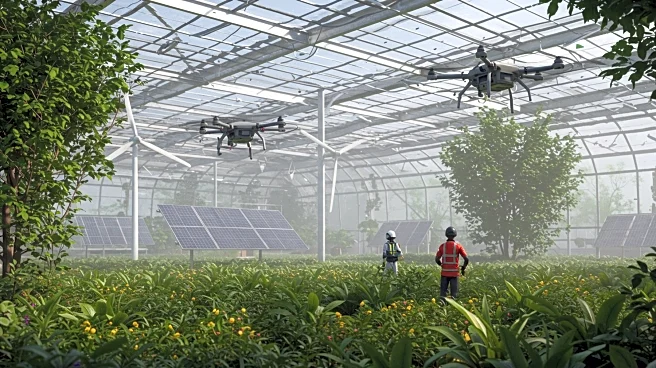What is the story about?
What's Happening?
The Low-Carbon Agriculture Market is experiencing growth as governments and consumers push for sustainable farming practices. Innovations in precision farming, biofertilizers, and renewable energy integration are reducing agricultural emissions. Recent developments include the U.S. Department of Agriculture's $1.2 billion funding program to promote methane-reducing feed additives and carbon-sequestering soil management. Other global initiatives include Australia's incentives for low-emission cropping systems and the EU's carbon credit framework for regenerative agriculture. Key players in this market include Yara International, BASF SE, and Bayer AG.
Why It's Important?
The expansion of the Low-Carbon Agriculture Market is significant for addressing climate change and promoting sustainable food production. By reducing emissions, these practices contribute to environmental conservation and align with global climate goals. The market's growth presents opportunities for businesses to innovate and capture market share, while also meeting consumer demand for sustainable products. This shift could lead to increased investment in agricultural technologies and influence policy decisions related to environmental sustainability.
What's Next?
As the market continues to grow, further advancements in technology and policy support are expected. Companies may increase their focus on research and development to enhance low-carbon solutions. Additionally, the regulatory environment will likely evolve to support these practices, potentially leading to new incentives and standards. Stakeholders, including farmers, agribusinesses, and policymakers, will play a crucial role in shaping the future of sustainable agriculture.














